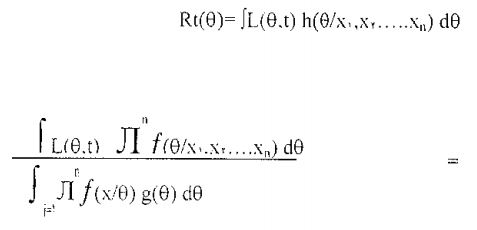The preference of the Boys method over the Ols method in estimating some economic functions-a relationship between gross domestic product and money supply in the Iraqi economy for the period 1990-2003
Keywords:
Boys' method, Ols' method, economic functionsAbstract
There is no doubt that the theory of estimation has great importance in the applications of statistical theory from practical aspects, through calculating a numerical value related to a feature parameter (unknown to a specific statistical population, and the sampling method is optimal in calculating a numerical value for a parameter (or features) belonging to the study population. , that is, obtaining an estimate that is not equal to the true parameter value. The value may be greater than the information available from that community. The emergence of the Bayes method in estimation (Bayes mode in Estimation), in addition to the traditional OLS method, led to the emergence of two trends in estimating the parameters of the regression model, and each direction has special assumptions. The traditional trends assume that the parameters to be estimated are constants, while the Bayes method assumes that the parameters to be estimated Their estimation is made up of random variables. This difference called on the decision maker to make a decision in choosing the optimal method in the estimation process. In light of this, the researcher explains the superiority of the Bayes method over the OLS method in the estimation process. The Bayes estimator depends on two functions, the first of which is known as the probability density function (loss). function) and the second is the loss function (posterior pdf). The first can be defined as a combination between the initial information and the data of the current sample. The second is called the squared error loss function, meaning it is used to measure the amount of error in the estimate, meaning making it as small as possible.

Downloads
Published
How to Cite
Issue
Section
License
Copyright (c) 2007 College of Administration and Economics - University of Karbala

This work is licensed under a Creative Commons Attribution-NonCommercial-NoDerivatives 4.0 International License.
Authors retain the copyright of their papers without restrictions.









